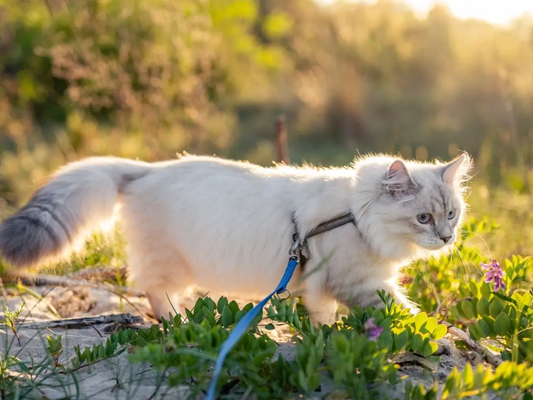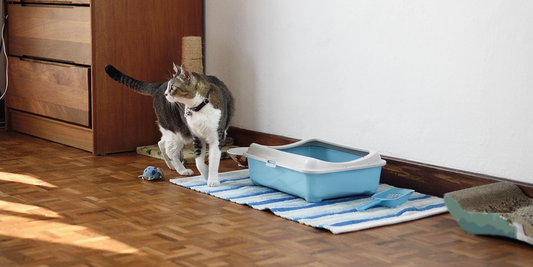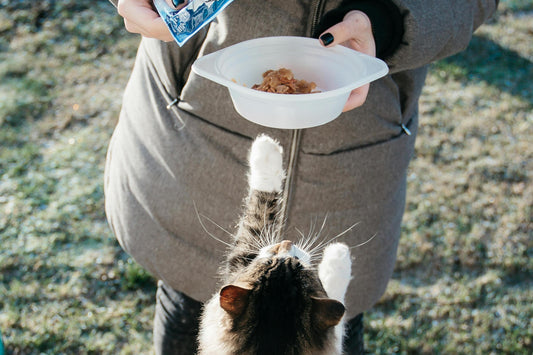Introduction:
Are you a cat owner concerned about your feline friend's bathroom habits? It's natural to wonder, "How long can a cat go without pooping?" Cats are known for their independent nature, but when it comes to their health, it's essential to understand their normal behaviors. In this comprehensive guide, we'll explore everything you need to know about your cat's bowel movements and provide expert insights to keep your furry companion healthy and happy.
How Long Can a Cat Go Without Pooping?
1. Understanding Cat Digestion: Ever wondered how a cat's digestive system works? Understanding the basics can shed light on their pooping patterns. Cats are obligate carnivores, meaning their diet primarily consists of meat. Their digestive systems are designed to efficiently process protein-rich foods, resulting in smaller and less frequent bowel movements compared to omnivores like humans.
In the wild, cats would consume prey rich in moisture and nutrients, aiding in digestion and waste elimination. However, domesticated cats often have diets that may lack sufficient hydration or fiber, affecting their bowel movements. Let's delve deeper into the factors influencing a cat's pooping frequency and duration.
2. Factors Influencing Pooping Frequency: Diet plays a pivotal role in determining a cat's pooping frequency and consistency. Cats fed high-quality, balanced diets rich in animal protein are likely to have regular bowel movements. Conversely, diets lacking in moisture or fiber may lead to constipation or irregularity. Additionally, hydration levels affect stool formation, with insufficient water intake potentially resulting in dry, hard stools that are difficult to pass. Age is another factor to consider, as senior cats may experience changes in their digestive function, leading to alterations in pooping habits.
3. Normal Pooping Frequency for Cats: On average, a healthy adult cat should poop at least once a day. However, some cats may go up to 48 hours without pooping without any cause for concern, especially if they're eating, drinking, and behaving normally otherwise. Monitoring your cat's litter box habits can provide valuable insights into their health status. If you notice significant changes in pooping frequency, such as prolonged constipation or diarrhea, it's advisable to consult your veterinarian for a thorough evaluation.
4. Signs of Constipation in Cats: Constipation occurs when a cat has difficulty passing stool, resulting in infrequent bowel movements or straining during defecation. Common signs of constipation include dry, hard stools, reduced or absent pooping, frequent litter box visits without producing feces, vocalization or distress while trying to poop, and lethargy or loss of appetite. If you observe any of these symptoms in your cat, it's essential to seek veterinary care promptly to identify the underlying cause and initiate appropriate treatment.
5. Addressing Constipation in Cats: Dietary modifications play a crucial role in managing constipation in cats. Switching to a high-fiber diet or incorporating moisture-rich foods, such as wet cat food or adding water to dry kibble, can help soften stools and facilitate bowel movements. Additionally, providing ample opportunities for exercise and mental stimulation can promote overall digestive function and reduce stress, which can contribute to constipation. In severe cases, your veterinarian may recommend laxatives or other medications to alleviate constipation and restore normal bowel function.
6. Preventing Pooping Problems: To prevent pooping problems in cats, ensure they have access to a balanced diet that meets their nutritional needs and supports optimal digestive function. Provide plenty of fresh water to keep your cat hydrated, as adequate hydration is essential for softening stools and promoting regular bowel movements. Regular veterinary check-ups are also crucial for monitoring your cat's overall health and addressing any potential issues before they escalate. By prioritizing preventive care and paying attention to your cat's bathroom habits, you can help them enjoy a happy, healthy life.
Conclusion:
In conclusion, understanding how long a cat can go without pooping and recognizing the factors that influence their bowel habits are essential aspects of responsible pet ownership. By staying informed and proactive, you can ensure your cat's digestive health and overall well-being. Remember to monitor your cat's litter box habits, seek veterinary attention for any concerning changes, and provide a supportive environment that promotes regular bowel movements. With proper care and attention, you can help your furry friend enjoy a comfortable and fulfilling life.
FAQs:
How Long Can a Cat Go Without Pooping?
Cats can typically go up to 48 hours without pooping, depending on various factors such as diet, hydration, age, and overall health. However, prolonged constipation or irregular pooping habits may indicate underlying health issues that require veterinary attention.
What Causes Constipation in Cats?
Constipation in cats can be caused by various factors, including dehydration, inadequate fiber intake, lack of exercise, underlying medical conditions such as kidney disease or megacolon, hairballs, or ingesting foreign objects.
Is It Normal for Cats to Poop Less Frequently as They Age?
Yes, it's not uncommon for senior cats to experience changes in their pooping habits due to age-related factors such as decreased mobility, muscle tone, and digestive function. However, any significant changes in pooping frequency or consistency should be evaluated by a veterinarian.
Can Diet Affect a Cat's Pooping Frequency?
Yes, diet plays a significant role in determining a cat's pooping frequency and consistency. Cats fed diets lacking in moisture or fiber may experience constipation, while those consuming balanced, high-quality diets are more likely to have regular bowel movements.
When Should I Consult a Veterinarian About My Cat's Pooping Habits?
If you notice any significant changes in your cat's pooping habits, such as prolonged constipation, diarrhea, straining during defecation, or blood in the stool, it's essential to consult your veterinarian promptly. These symptoms may indicate underlying health issues that require professional evaluation and treatment.
What Can I Do to Help My Constipated Cat?
If your cat is constipated, there are several steps you can take to help alleviate their discomfort and promote regular bowel movements. These may include dietary modifications, increased hydration, providing opportunities for exercise and mental stimulation, and consulting your veterinarian for appropriate treatment options.








